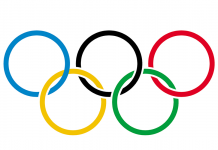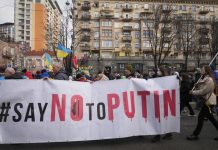Khadijha Tariq
The western and Arab world were taken aback by Saudi’s historic diplomatic victory in carrying out a prisoner swap deal between Ukraine and Russia in late September- a first-of-its-kind bilateral agreement that has bring to life hopes of restoring stability and lasting peace in these warring countries.
This raging conflict unleashed in the pretext of demilitarizing Ukraine and defending territorial integrity has adversely affected 14000 civilian casualties– out of which 5767 were ruthlessly killed, while 8292 sustained life-threatening injuries. Also, the alleged allegations of mistreatment, unlawful detention, and inequitable access to food, water, and other essential healthcare necessities levelled against the Russian forces to penalize the prisoners of war is distressing.
A recent UN report found that at least 426 civilians were facing arbitrary detentions and enforced disappearance in the areas under Russian control. In contrast, the Ukrainian forces carried out 51 cases of arbitrary arrest and 30 of enforced disappearance.
But now, this surprise prisoner swap deal that led to the release of over 300 people, including 215 Ukrainians, ten foreigners, and 55 Russians and pro-Moscow Ukrainians, accentuates that the transformational power of third-party diplomacy is the only way out to end this war.
In an exclusive interview with Arab News this week, Zelensky commended Saudi efforts for brokering this deal and staying true to its commitment toward humanitarian initiatives; however, he bluntly refused to engage in bilateral talks with Putin.
Now with the Russian-Ukraine war entering its seventh month and allies siding on each side, the fear of nuclear war cannot be left out. While Putin’s recent declaration of winning over a hasty referendum held in four occupied regions has been written off even by its closest allies —China, Serbia and Kazakhstan —Zelensky in his interview to Arab News stated that these claims were nothing more than a “bloody PR(stunt) based on human victims.”
This recent annexation fiasco flags that the Kremlin has no plan to back down, until its political and military purposes are met. Similarly, the military successes of Kyiv due to a whopping aid of $60 billion by NATO spell out that there seems to be no end to this war in sight. When will we understand that there are no out-and-out winners in combat- just agony, grief, and loss of innocent lives.
Several Arab countries, including Saudi Arabia, UAE, and Egypt denounced Russia’s war in Ukraine during a UN vote last March, yet they still choose to remain ‘neutral’ on the matter. Also, other countries, such as North Korea and China are clearing reaping the benefits of the west’s decision to isolate Russia by deepening their ties.
It is high time for Moscow, Kyiv, their strategic allies, and the neutral parties to realize that a prolonged war can exacerbate inflationary pressures, economic vulnerability and acute food insecurity. And from an economic standpoint, the World Bank has already predicted that the Ukrainian economy will contract by 35 percent in 2022, and more than 14 million people will be displaced due to the ongoing war.
But the fact that Saudi Arabia and Turkey successfully brought both the warring nations to the negotiation table means that there is room for more neutral governments to intervene and play their part in brokering a peace deal. They cannot only condemn Putin’s fake referendums, but also convince Zelensky to soften his mediation stance- putting an end to widespread humanitarian suffering and infrastructural destruction on both sides of the border.
With Kyiv’s forces winning over swathes of Kremlin controlled territory and the war entering a critical juncture, third-party diplomacy can help turn the tide by establishing humanitarian corridors and ensuring a partial ceasefire to this uncalled-for military belligerence. With this, both parties can renew diplomatic contact to de-escalate the conflict- or else the regional geopolitical and economic shifts will exacerbate to no point of recovery.














